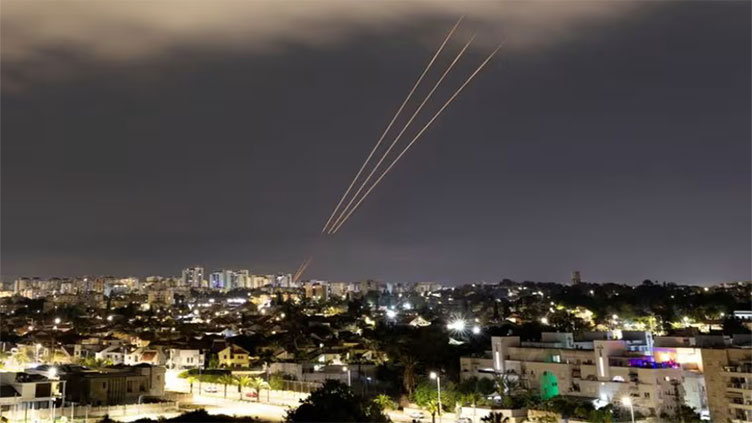White House says Iran did not warn US about attack specifics

World
"Iran never gave us a message giving us the time or the targets," said Kirby.
WASHINGTON (Agencies) - Iran did not provide warnings to the United States last week about its timeframe for launching an attack on Israel or its potential targets, the White House said on Monday (Apr 15).
White House national security spokesperson John Kirby told reporters that the United States did exchange messages with Iran but that there were never any messages regarding Iran's timeframe or targets for its weekend attack.
Kirby would not be drawn into explaining what the messages were about. He said that reports suggesting Iran tipped off the United States about its plans were "categorically false" and "malarkey".
"Iran never gave us a message giving us the time or the targets," said Kirby. "This whole narrative out there that Iran passed us a message about what they were going to do is ridiculous."
Turkish, Jordanian and Iraqi officials said on Sunday that Iran gave wide notice days before its drone and missile attack on Israel, but US officials said Tehran did not warn Washington and that it was aiming to cause significant damage.
Iranian sources told Reuters last week Tehran signalled to Washington that it would respond to Israel's attack on its Syrian embassy in a way that aims to avoid major escalation and it will not act hastily.
A US official said late last Thursday that the United States expects an attack by Iran against Israel but one that would not be big enough to draw Washington into war.
Iran said it was carrying out a retaliatory strike against Israel for an Apr 1 attack on an Iranian consulate in Damascus, Syria.
Israel's army said Monday that those killed in a strike on the Iranian consulate in Damascus had engaged in "terrorism against Israel" - the first official comment on the Apr 1 attack.
"To the best of my knowledge, those who were killed in Damascus were members of the Quds Force. These were people who engaged in terrorism against the State of Israel," military spokesman Rear Admiral Daniel Hagari said when asked at a briefing about the strike.
"Among these terrorist operatives, there were Hezbollah members and Iranian helpers. There was not a single diplomat there as far as I know. I don't know of any civilian who was killed in this attack," he said.
Iran had vowed to avenge the strike on the consular section of its embassy that killed seven Revolutionary Guards including two generals from the Quds Force, the Guards' foreign operations arm.
Late Saturday, Iran launched more than 300 drones and missiles towards Israel, the first-ever direct attack by Iran on Israeli soil.
Israel's military said it intercepted 99 per cent of the aerial threats with the help of the United States and other allies, and that the attack caused only minor damage, including to a military base in the country's south.
Earlier on Monday, Israel's army chief Herzi Halevi said Israel would respond to the Iranian attack.
"This launch of so many (Iranian) missiles, cruise missiles, and UAVs into the territory of the State of Israel will be met with a response," Halevi said when he visited the Nevatim base, which the army said was lightly damaged in the Iranian strike.


